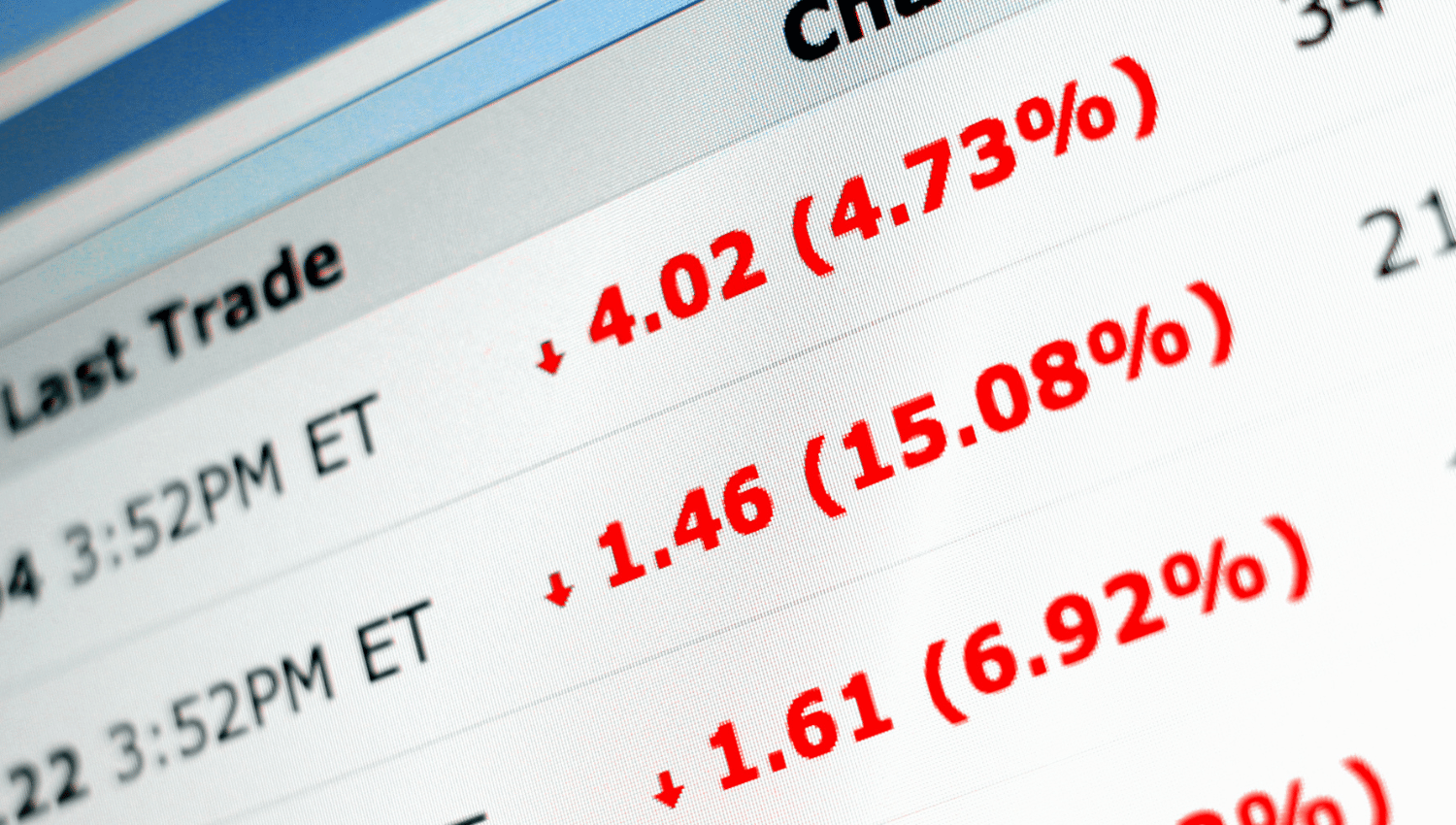Currency exchange rates represent the relative value of one currency against another. For example, an exchange rate of GBP/USD of two indicates that one pound will buy two U.S. dollars. The U.S. dollar is the most commonly used reference currency, meaning other currencies are usually quoted against it.
The Link Between Oil Prices and the USD
Oil prices and the U.S. dollar have an inverse relationship. A barrel of oil is priced in U.S. dollars across the world. When the U.S. dollar is strong, fewer U.S. dollars are needed to buy a barrel of oil. Conversely, when the U.S. dollar is weak, the price of oil is higher in dollar terms. This relationship is due to the petrodollar system, which dates back to the early 1970s and promotes the U.S. dollar as the world’s reserve currency.
How Oil Affects the EUR/USD Currency Pair
There is a negative correlation between the Euro/Dollar exchange rate and crude oil prices. Fluctuations in the EUR/USD exchange rate can affect crude oil prices due to the international status of the U.S. dollar and its central position in the International Monetary System. A study found that a 10% increase in the price of oil leads to a depreciation of the U.S. dollar effective exchange rate.
Other Factors Influencing the EUR/USD Exchange Rate
Several factors influence the EUR/USD exchange rate, including:
- 1. U.S. Gross Domestic Product (GDP) growth rates.
- 2. Interest rates set by the Federal Reserve and the European Central Bank.
- 3. Inflation differentials between the U.S. and the Eurozone.
- 4. Current account deficits.
- 5. Public debt levels.
- 6. Political events and government policies.
In summary, oil prices and currency exchange rates, particularly the EUR/USD pair, are interconnected. The inverse relationship between oil prices and the U.S. dollar, as well as the various factors influencing the EUR/USD exchange rate, play a crucial role in determining the value of these currencies in the global market.
The Influence of the Oil Market on the EUR/USD Currency Pair
Oil Prices and the USD
As previously mentioned, oil prices and the U.S. dollar have an inverse relationship, with crude oil being priced in U.S. dollars globally. A stronger U.S. dollar results in lower crude oil prices, while a weaker U.S. dollar leads to higher crude oil prices. This relationship affects the EUR/USD currency pair, as fluctuations in oil prices can influence the exchange rate.
Eurozone’s Energy Dependence
The Eurozone is heavily dependent on energy imports, with oil and petroleum products accounting for 34.5% of the EU energy mix in 2020. In the same year, the EU imported 57.5% of the energy it consumed. This high dependency on energy imports, particularly from Russia, which supplies 24.4% of the EU’s energy needs, makes the Eurozone vulnerable to fluctuations in oil prices. Consequently, changes in oil prices can have a significant impact on the EUR/USD exchange rate.
Historical Examples of Oil Market Impact on EUR/USD
There have been instances in the past where oil prices have significantly influenced the EUR/USD exchange rate. For example, during the 2001-2004 period, oil prices and the U.S. dollar exchange rate showed a strong inverse relationship. Another example is the 2008 financial crisis, where the Federal Reserve implemented an expansionary monetary policy to support exports through a weaker currency against the Euro. This policy led to an increase in oil prices due to the dollar’s weakness, further affecting the EUR/USD exchange rate.
To summarize, the oil market plays a crucial role in influencing the EUR/USD currency pair due to the inverse relationship between oil prices and the U.S. dollar, as well as the Eurozone’s high energy dependence. Historical examples demonstrate how fluctuations in oil prices can significantly impact the EUR/USD exchange rate, making it essential for investors and policymakers to closely monitor these dynamics.
Economic and Financial Implications
Effects on Global Economy and Trade
Oil prices have a significant impact on the global economy and trade. When oil prices rise, the cost of production for businesses increases, making it more expensive for households to carry out their normal activities. High oil prices can also lead to increased job creation and investment in the oil industry, as it becomes economically viable for oil companies to exploit higher-cost shale oil deposits. However, high oil prices can also cause damage to oil-importing countries, making them more vulnerable to global commodity market fluctuations.
The trade consequences of oil prices are also important to consider. High oil prices can increase transportation costs, leading to higher home bias and higher consumption prices. This can result in more goods becoming non-traded and a potential slowdown in globalization. On the other hand, lower oil prices can benefit consumers with cheaper gasoline and travel, as well as lower prices for many manufactured goods.
Currency Exchange Rate Fluctuations
As mentioned earlier, oil prices have a significant impact on currency exchange rates, particularly for oil-exporting and oil-importing countries. Fluctuations in oil prices can lead to changes in the demand and supply of foreign exchange, affecting the relative value of currencies. For example, high oil prices can appreciate the currencies of oil-exporting countries and depreciate the currencies of oil-importing countries.
Central Banks’ Response to Oil Price Shocks
Central banks play a crucial role in responding to oil price shocks. They are responsible for stabilizing their national economies and implementing monetary policies to counter the effects of oil price fluctuations. For example, during the 2008 financial crisis, the Federal Reserve implemented an expansionary monetary policy to support exports through a weaker currency against the Euro. This policy led to an increase in oil prices due to the dollar’s weakness, further affecting the global economy.
In the case of an oil price shock, central banks should identify the deeper causes of oil price shocks and respond to the underlying fundamental shocks. This proactive approach can help mitigate the negative effects of oil price fluctuations on the economy and maintain stability in the financial markets.
In conclusion, oil prices have significant implications for the global economy, trade, and currency exchange rates. Central banks play a crucial role in responding to oil price shocks and implementing monetary policies to maintain economic stability. Understanding these dynamics is essential for policymakers and investors to make informed decisions in the face of oil price fluctuations.
Strategies and Conclusion
Hedging Strategies for Oil and Currency Risks
Hedging strategies are essential for managing oil price and currency risks. For oil refining companies, these strategies can include managing currency risk in their operations, as well as oil price risk in crude and product inventory. Currency ETFs can be used to hedge against exchange rate risk, as they offer investor-friendly features that make them ideal for retail investors. In addition to these strategies, governments and state-owned oil companies can explore tailor-made arrangements with financial intermediaries to hedge their oil price risk.
Outlook and Conclusions
The future of oil prices is uncertain, with some experts predicting a looming oil price super cycle driven by supply shortages and reduced investment in shale oil production. However, this super cycle may be the last, as the shift towards renewable energy and climate goals will transform the oil market. In the short term, crude oil prices are expected to gradually increase, reaching about $80/b in 4Q23 and averaging about $84/b in 2024. In conclusion, hedging strategies are crucial for managing oil and currency risks. As the future of oil prices and currency exchange rates remains uncertain, it is essential for investors and policymakers to closely monitor market developments and adapt their strategies accordingly.
Disclaimer: The information provided here is for educational and informational purposes only and should not be considered as financial advice or a recommendation to buy, sell, or hold any securities or investments. Investing in the stock market carries inherent risks, and past performance is not indicative of future results.


